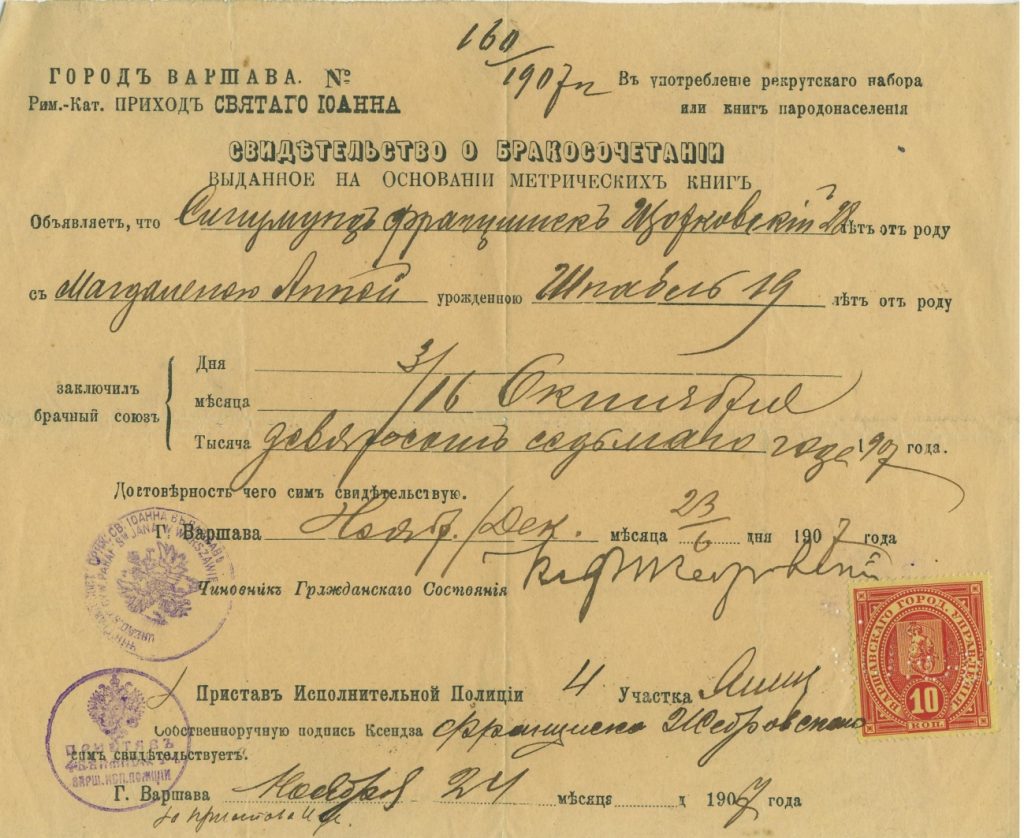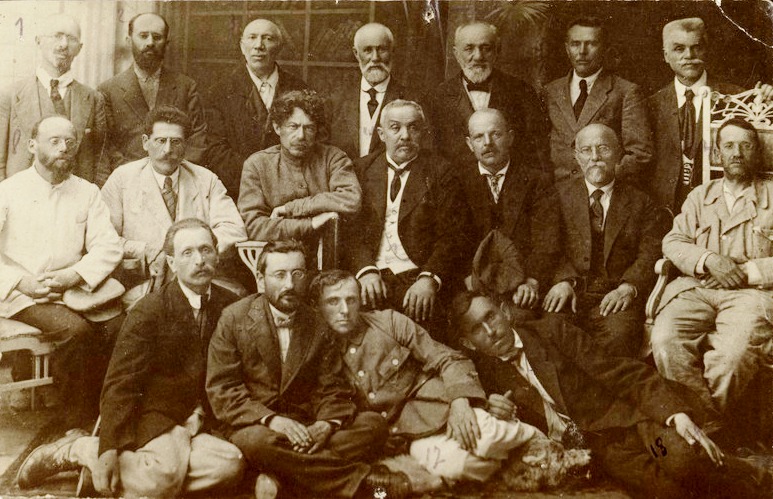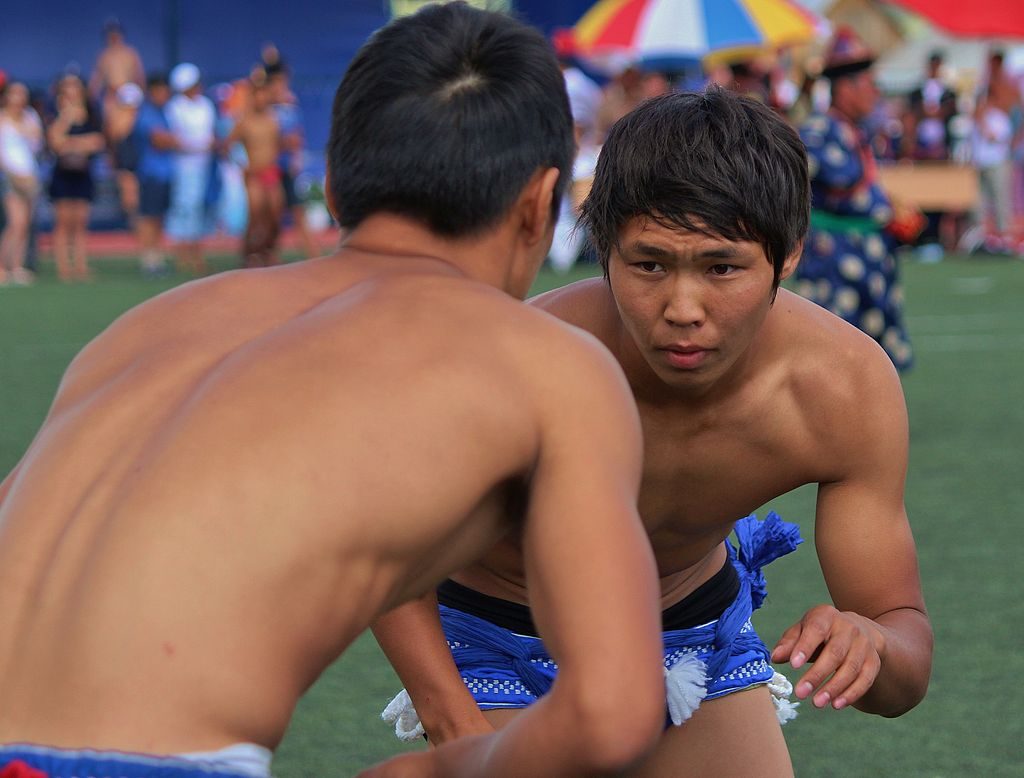Who Gets Called “Russian”? Posted by Maria on Feb 5, 2018 in Culture, History
How often have you heard the phrase “So-and-so is Russian”? What was meant by “Russian” in that case? Was the person a citizen of the Russian Federation? Did they live in any of the neighbo(u)ring countries? Did they speak Russian? This post will examine the many ways “Russian” (русский and other related words) is used.
Subject of the Russian Empire
Often, when talking to a person outside Russia about their family history, you may hear them say, for example, that their grandmother (бабушка, note the word stress) was from Russia. So far so good, right? Then they casually mention said grandma lived, let’s say, in Odessa (Одесса, a city currently in Ukraine). What’s going on here? Did the person confuse Russia and Ukraine?
When it comes to family trees or immigrant ancestors, “Russia” (Россия) is sometimes used as a catch-all equivalent of the Russian Empire (Российская империя). That empire, which existed from the 18th century until the Russian Revolution in 1917, spanned various territories including parts of what is now Poland (Польша), Finland (Финляндия), Georgia (Грузия), Ukraine (Украина), and other sovereign nations. Some of these became independent after the collapse of the Russian Empire, while others broke away after the collapse of the Soviet Union (Советский Союз).
Soviet or Russian?
An American once asked me if I was from Russia or one of the former Soviet Republics. A tongue-in-cheek answer is “both” as Russia is a former Soviet Republic (советская республика). A more serious answer is that a person from any of the newly-independent nations that used to be ruled by Russia is unlikely to say “Russia” instead of the name of their country. However, “Russia” was often used interchangeably with “the Soviet Union,” especially by foreign press, so people abroad may refer to all former Soviet republics as “Russia.”For instance, my distant American cousins tell me their grandfather used to send clothes to his sister (сестра) in “Russia.” I happen to know that the sister, who was my great-grandmother (прабабушка), lived in Chernivtsi (Черновцы, formerly Черновицы, in Russian) in Ukraine. It also gets confusing because there are people who identify as Russian (русские) and people who do not identify as Russian but speak Russian as their first language in the former Soviet republics.
Heritage or Citizenship?
Several of my friends and I have heard people abroad say we “don’t look Russian.” As Jenya pointed out on this blog, there is no such thing as a single Russian look. People of various backgrounds came to live on the territory of Russia as a result of conquest or migration, so you may find, among other groups, people of Slavic, Turkic, Mongolian, or Finnic heritage, or often a mixed heritage.As I wrote before, “Russian” may refer to a person’s ethnicity (русский/русская/русские) or citizenship (россиянин/россиянка/россияне). Some documents in Russia, like birth certificates (свидетельство о рождении), may still indicate a person’s ethnicity, and a citizen of Russia (россиянин) may well be labeled something other than русский. However, in casual conversation, русские is much more common when referring to people hailing from Russia or sharing its culture, whatever their ancestry or current citizenship. For example, one may say “Русских легко узнать за границей” (“It’s easy to recognize Russians abroad”) without conducting a passport check or a DNA test.
What other contexts have you heard the word “Russian” used in?

Build vocabulary, practice pronunciation, and more with Transparent Language Online. Available anytime, anywhere, on any device.







Comments:
samonen:
Although the Grand Duchy of Finland was a part of the Russian Empire, it had its own citizenship. And Russian was not the/an official language in Finland. So I guess this means Finns never were considered Russian in any sense of the word. We even had a separate Olympic team of 164 athletes (marching to the stadium after the Russian Empire team under the sign Finland) in the 1912 summer Olympics which did really well being fourth overall with 26 medals. The mighty Russian Empire ended up sixteenth with five medals. 😮
Finland being the case in point, in 1990, the president of Finland, for humanitarian reasons, granted people of Finnish ancestry (mostly Ingrians, or Ingrian Finns) the right to move to Finland as “repatriates” (not immigrants) although they had been inhabiting the area around St Petersburg and Khachina since the 17th century (and being dispersed God knows where under Stalin). They are generally regarded as Russians, especially if they don’t speak Finnish or have an accent. And honestly I don’t know what else to call a person whose first language is Russian but who has a Finnish grandparent. It’s interesting to hear young people switch from Russian to Finnish and back just like that–no accent although the languages are phonetically very different.
Maria:
@samonen Very interesting, Samonen. I imagine people in other dependencies of the Russian Empire, e.g. Poland, were not seen as Russian by contemporaries. The confusion probably starts with physical or temporal distance.
Stan Levinson:
My family (great-grandparents) were from “Russia”. Except they really weren’t, and I didn’t know this until I was well into my adulthood. We always heard the great grandparents were Russian, but here’s the rub…. they were Jewish, and Jews didn’t live in Russia (weren’t allowed, I believe, in the 19th century): i later got some “definition” that one of my grandparents was Polish (ok, HE was never called Russian), and the other three were from Lithuania and Belarus. I found out the latter because my father, in his later years, said that he rememberd they said something about being from near Minsk. So many many Ashkenazi Jews in the US will say they are “Russian”, but that is certainly in a broad sense.
Maria:
@Stan Levinson I hear you! My great-grandmother was also born into a Jewish family in Iasi, currently in Romania, was swept up by WWII and ended up in Chernivtsi, then part of the USSR and currently in Ukraine. But as far as her American relatives were concerned, she lived in “Russia.”
TW:
This an excellent, informative, and valuable article. Ура!!
Maria:
@TW Thank you!
samonen:
@ Stan Levinson
We were many.
But Jews were one of the main excluded groups of people in the Russian empire called “inorodsy” (e.g. Jews, east Asians). “Inorodets/inorodsy” . It means about “of a foreign/different birth”.
samonen:
@samonen So I, somewhat provocatively, ask: How does this differ from the “Blut und Boden” ideology of the Nazis?